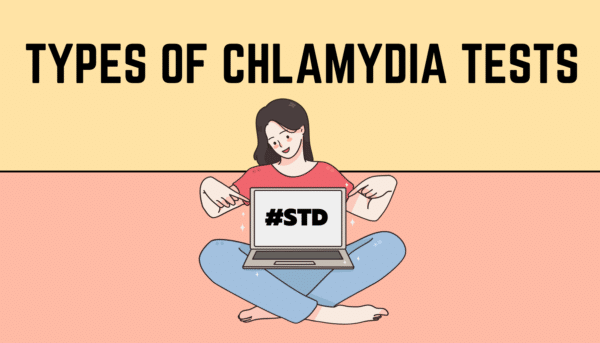Boosting the Body and Your Energy Level
Metabolism Begins in the Thyroid
Your energy is not limited to the reserves you need to draw on to get through a single afternoon at work or to meet the physical demands of a long weekend of increased activity, yard work or extreme physical exertion. Rebounding from “brain drain” or pushing the limits during an ultramarathon requires intimate knowledge of how energy is produced and regulated. Energy radiates throughout your entire body, relating to the optimal functioning of many organs and systems, day in and day out. The center of this energy is your thyroid gland.
The primary function of the thyroid gland is to maintain metabolism. To help evaluate thyroid gland function and diagnose thyroid disorders, a thyroid testing and knowledge is critical. The tests included in a thyroid panel measure the amount of thyroid hormones in your blood. These hormones are chemical substances that travel through the bloodstream and control or regulate your body’s metabolism, how it functions and uses energy.
Like bank regulators and auditors that check up on the banks and keep them running smoothly and efficiently, employing a thyroid blood test can help boost your health.
What Your Body Might Be Telling You About Your Thyroid
Thyroid diseases are primarily conditions that affect the amount of thyroid hormones being produced. Women are more likely than men to have thyroid problems, with 1 in 8 developing a thyroid disorder during her life.
Thyroid dysfunction can lead to abnormal levels of weight gain, general fatigue, sleeping disorders, anxiety, depression, allergies, skin diseases, pains and gastrointestinal problems. Thyroid dysfunction normally relates to production disorders that involve either excessive or inadequate production of thyroid hormones.
Here is a list of the more common thyroid disorders.
Hypothyroidism: occurs when too little thyroid hormone is produced and is marked by a slowing of body functions. Symptoms include weight gain, dry skin, constipation, cold intolerance, puffy skin, hair loss, fatigue, and menstrual irregularity in women. Severe untreated hypothyroidism, called myxedema, can lead to heart failure, seizures, and coma. In children, hypothyroidism can stunt growth and delay sexual development. For this reason, hypothyroidism testing is performed in the U.S. as part of newborn blood screening programs, since early detection and treatment can minimize long-term damage.
Hyperthyroidism: occurs when too much thyroid hormone is produced; sometimes called “overactive thyroid” and marked by an acceleration of body functions. Symptoms include increased heart rate, anxiety, weight loss, difficulty sleeping, tremors in the hands, weakness, and sometimes diarrhea. There may be puffiness around the eyes, dryness, irritation, and, in some cases, bulging of the eyes. The affected person may experience light sensitivity and visual disturbances.
Graves Disease: the most common cause of hyperthyroidism; it is a chronic autoimmune disorder in which the affected person’s immune system produces antibodies that attack the thyroid, causing inflammation, damage, and the production of excessive amounts of thyroid hormone.
Hashimoto Thyroiditis: the most common cause of hypothyroidism in theU.S.; like Graves disease, it is a chronic autoimmune condition related to the production of antibodies that target the thyroid, causing inflammation and damage. With Hashimoto thyroiditis, the body makes decreased amounts of thyroid hormone.
Thyroiditis: an inflammation of the thyroid gland; associated with hypo- or hyperthyroidism. It may be painful, feeling like a sore throat, or painless. Thyroiditis may be due to autoimmune activity, an infection, or exposure to chemicals.
Thyroid Nodules: a small lump on the thyroid gland that may be solid or a fluid-filled cyst; these nodules are common, and the overwhelming majority of them are harmless. Occasionally, thyroid nodules can be cancerous and need to be treated.
Thyroid Cancer: fairly uncommon, with about 37,000 people diagnosed each year in the U.S.
Goiters: visible enlargement of the thyroid. In the past, the condition was common, due to lack of iodine in the diet.
Specific Tests
Blood tests for thyroid disorders measure the amount of thyroid hormones in your blood, those hormones that control or regulate your body’s metabolism, how your body functions and uses energy. To help evaluate thyroid gland function and to help diagnose thyroid disorders,
A Thyroid Blood Test, known formally as a Thyroid Function Blood Panel includes:
TSH (thyroid stimulating hormone or thyrotropin): test for hypothyroidism, hyperthyroidism and to monitor thyroid replacement therapy
Thyroxine (T4) Free Serum: test for hypothyroidism and hyperthyroidism
Tri-iodothyronine (T3) Free Serum: test for hyperthyroidism
Other thyroid tests include T3 resin uptake (T3RU) and tests for test Thyroid Antibodies, Calcitonin, and Thyroglobulin
The preferred test to screen for thyroid disorders is a TSH test. If your TSH level is abnormal, it will usually be followed up with a total T4 or free T4 test.
When TSH concentrations are increased, your thyroid will make and release inappropriate amounts of T4 and T3, and the person may experience symptoms associated with hyperthyroidism. If there is decreased production of thyroid hormones, you may experience symptoms of hypothyroidism.
Order a Free T3 and Free T4 Blood Test Panel without insurance or a doctor’s note.
Taking Charge

It is estimated that 20 million Americans have some form of thyroid disease, and approximately 60 percent of those with thyroid disease do not know it. To help evaluate thyroid gland function and to help diagnose thyroid disorders, a thyroid test or full thyroid panel may be necessary as part of monitoring your health or when symptoms suggest hypo- or hyperthyroidism due to a condition affecting the thyroid.
As with any part of your overall health, exercise and dietary measures are beneficial to your thyroid gland. Iodine is a major component of both thyroid hormones, and iodine deficiency in diet is one of the major causes of hypothyroidism. Iodized salt, seafood and vegetables have sufficient iodine content to help prevent occurrence of hypothyroidism.
To help suppress thyroid function when hyperthyroidism has been detected, there are known to be vegetables that can gradually calm down an overactive thyroid. Brussels sprouts, cabbage, spinach, broccoli, turnips, kale and beans can contribute to inhibiting the excess production of thyroid hormones.
The thyroid depends on essential fatty acids in order to metabolize nutrients. These Omega-3 and Omega-6 fats also act as anti-inflammatory agents, affect moods, and perform many other cellular functions. The body cannot synthesize these essential fatty oils, and therefore they must be supplied to the body through the diet. Essential fatty acids can be found in fish and shellfish, soya oil, canola oil, chia, pumpkin and sunflower seeds, flaxseed, leafy vegetables, and walnuts.
For overall thyroid health, you should exercise regularly and avoid refined foods, refined sugar, caffeine and alcohol. To diagnose any thyroid problems visit Walkinlab’s Thyroid Tests to order a cheap and convenient blood test today!




